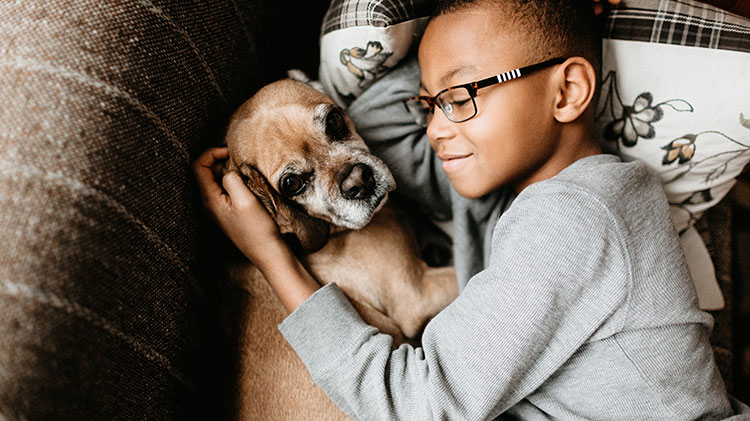Budgeting for a pet
Learn about different costs of owning a pet and how to budget for them.
When it comes down to making the decision to add a furry friend as a permanent member of the family, it is important to consider all of the costs that come with it. Pet care costs can add up quickly, so it would benefit future pet owners to add these costs to their monthly budget and consider tips to help keep those pet costs manageable. In addition, some of the expenses might not be recurring, but it is good to keep them in mind when thinking about adding a pet to your family. Here are some of the different costs involved in pet ownership.
One-time pet expenses
When you get your pet for the first time, there are usually some one-time expenses associated with it. Here are some you might budget for:
- Getting a puppy or a cat: Whether you decide to get a pet from a breeder or pet adoption agency, you will need to prepare for payments or fees involved with the adoption process.
- First vet visit: After you bring your pet home, it’s a good idea to visit your vet to make sure your pet is in good health. Depending on the age of the animal, sooner or later you may incur expenses related to vaccines, neutering or spaying, microchipping and licensing costs.
- Start up supplies: Plan on spending money for tags, training pads, food bowls, leashes, bedding and toys. All these supplies may help your pet adjust to its new home.
Monthly and non-monthly pet expenses
After making the decision to get a pet, and when planning your monthly budget, keep in mind your pet expenses may either be fixed (usually the same every month) or variable (changing from month to month). Some pet care costs that might occur monthly include:
- Grooming: Keeping your pet well groomed can work wonders for your pet's health and hygiene. Categorize your grooming costs as fixed, variable or non monthly depending on how often you utilize grooming services.
- Food: Getting pet food is an ongoing purchase that you can pencil into your pet budget. Some owners may benefit from adding this to the variable expense category, as money allocated towards pet food can vary from month to month.
- Insurance: Many pet owners want to make sure that their pet's costs are taken care of in the event of a major illness or accident. Consider adding pet insurance as a fixed monthly cost to your budget.
- Training: A well-trained pet can help make an owner's life easier, and possibly protect you and your home from unwanted costly damages. Consider adding those training class costs as a fixed expense in your budget until your pet is well behaved and ready to cooperate.
In addition, you may also want to account for non-monthly expenses. These expenses usually occur infrequently throughout the year and may require that you prepare by putting money aside each month.
- Veterinarian visits: Many pets will require a trip to the vet's office at some point throughout the year, so as a pet owner, you may want to plan and account for veterinary expenses every year as a non monthly expense. This will help increase the likelihood that your pet is up to date on its vaccinations and that any health issues are spotted in a timely manner.
- Toys: Keeping those pets busy and entertained can impact your wallet as well. Consider treating your pet to new toys throughout the year and adding this as a non monthly expense in your budget.
- Boarding/walking services: Knowing that your pet is well taken care of while you are away from home is essential, which means a boarding service may come into play. Some dog owners choose not to leave them home throughout the day while at work and would rather take advantage of dog walking services to keep them active. Consider adding boarding costs or walkers as a fixed monthly expense for routine costs, or a non monthly expense if you only take advantage of boarding or walking services during vacations or extended time away from home.
Once your pet is settled at home and with your family, learn ways to help keep your furry friend safe while in the house and on the road. And if you have questions about pet insurance, reach out to a State Farm® agent for additional information.




